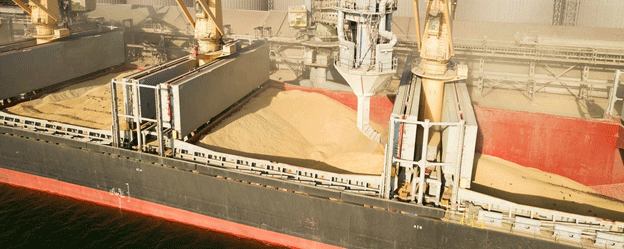In the global grain trade, four corporations—ADM (Archer Daniels Midland), Bunge, Cargill, and Louis Dreyfus—collectively dominate, handling an estimated 50–60% of the world’s agricultural commodities like wheat, corn, and soybeans. Known as the “ABCD” of agribusiness, these giants wield immense market power, influencing prices, supply chains, and competition. A recent study commissioned by the European Parliament’s Agriculture Committee has spotlighted the risks of this concentration and proposed measures to enhance transparency and regulation.
Market Dominance by the Numbers
- Global Market Share: The ABCD firms moved approximately 540 million tons of agricultural commodities in 2022, out of a global total of 920 million tons, according to USDA data. This volume is roughly 13–14 times Germany’s annual grain harvest.
- Historical Trends: A decade ago, their share of the global market was estimated at 70–90%. While competition from players like China’s Cofco International and Glencore’s subsidiary Viterra has reduced their dominance, ABCD remains firmly in control.
- Recent Developments: Bunge’s acquisition of Viterra, approved with conditions by the EU in August 2024, highlights ongoing consolidation efforts. This horizontal and vertical expansion strengthens the firms’ grip on supply chains, from raw production to processed products like biofuels and animal feed.
Risks to Farmers and Consumers
- Speculative Practices: The study warns that ABCD’s detailed market knowledge enables speculative activities that could harm both farmers and consumers. By leveraging their position, these firms may prioritize shareholder profits over fair market practices.
- Impact on Small Farmers: Smaller agricultural producers often lack the bargaining power to negotiate fair prices, making them vulnerable to the decisions of dominant traders. This could erode farmer independence and financial stability.
- Environmental Concerns: The concentration of market power also raises alarms about unsustainable practices, as the focus on scale and profit could exacerbate deforestation, soil degradation, and other environmental challenges.
Proposed Solutions
To mitigate these risks, the study recommends:
- Increased Transparency: Mandatory reporting of trading activities, stock reserves, and financial risk exposure in derivative markets.
- Regulation of Speculation: Revisions to EU financial directives (MiFID II/MiFIR) to ensure oversight of speculative and hedging activities in agricultural commodity trading.
- Windfall Tax: Consideration of an excess profit tax for agribusiness firms to prevent overexploitation of market power during crises.
- Support for Small Farmers: Policies to strengthen smaller players’ competitiveness and negotiating power in the global market.
Mixed Reactions in the EU
The recommendations have elicited varied responses:
- Skepticism About Overregulation: Critics warn that measures like windfall taxes could stifle growth and innovation in the sector.
- Calls for Transparency: Advocates emphasize the importance of greater market reporting and oversight to ensure fair competition and stability.
- Focus on Sustainability: Some policymakers have linked these issues to broader efforts to reduce reliance on intensive livestock farming and improve global food security.
The dominance of ADM, Bunge, Cargill, and Louis Dreyfus in the global grain trade poses significant challenges to market fairness, farmer independence, and sustainability. While regulatory measures could curb the risks, a balanced approach is essential to foster competition, transparency, and resilience in the agricultural sector. Policymakers must act decisively to ensure that the benefits of globalization and scale are shared equitably across the supply chain.
Error





